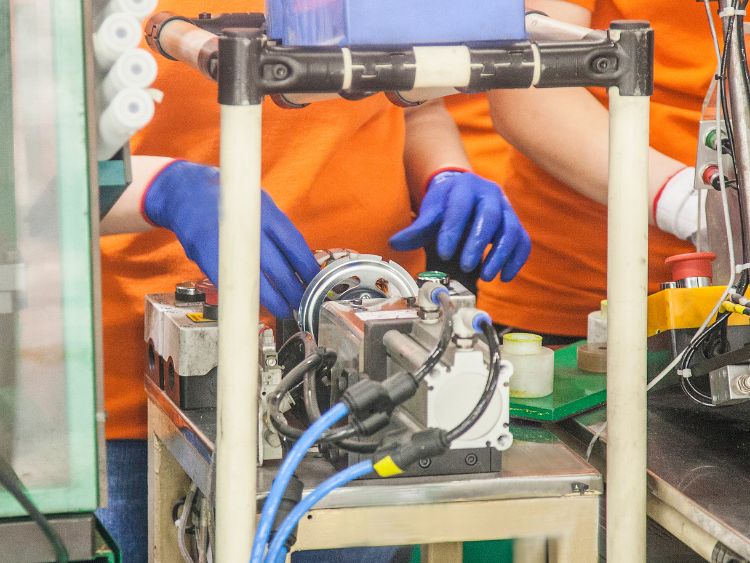In today’s digitally driven world, where vehicles are as sophisticated as any high-tech gadget, auto electrical connectors play a pivotal role. These tiny but mighty components are essential in ensuring that electrical systems within a vehicle communicate effectively, powering everything from your dashboard lights to the engine itself. This article dives deep into the world of auto electrical connectors, exploring their types, uses, and the latest advancements. Buckle up as we embark on a journey into the heart of your vehicle’s electrical system!
Understanding Auto Electrical Connectors
Auto electrical connectors are the bridge between various electrical components in a vehicle. These connectors ensure that electricity flows securely and efficiently across different systems, enabling everything from your car’s stereo system to its braking system to function seamlessly.
Types of Auto Electrical Connectors
Let’s take a closer look at some of the most common types of connectors found in vehicles:
- Bullet Connectors: Small and round, these connectors are used for simple, low-current connections.
- Spade Terminals: Shaped like a fork, they allow for quick connections and disconnections.
- Deutsch Connectors: Known for their durability, these are used in environments where connectors need extra protection from the elements.
- Weather Pack Connectors: Specifically designed to withstand moisture and dirt, perfect for outdoor applications.
Choosing the Right Connector
Selecting the right connector involves considering several factors:
- Current Load: The amount of current that will pass through the connector.
- Environment: Whether the connector needs to be resistant to heat, chemicals, or moisture.
- Size and Space: The available space for the connector in the vehicle.
Applications in Modern Vehicles
Auto electrical connectors are not just about making connections; they are about making effective and efficient connections that stand the test of time and harsh driving conditions. Here are a few areas in modern vehicles where these connectors are indispensable:
- Engine Controls: Connectors send precise controls to the engine for performance and efficiency.
- Safety Systems: Essential for the deployment of airbags and the operation of anti-lock braking systems.
- Infotainment Systems: Connectors power and link the components of audio and navigation systems.
Innovations and Trends
The future of auto electrical connectors is bright with innovation. As vehicles become more electronic and autonomous, the demand for reliable and sophisticated connectors will only increase. Here are a few trends shaping the future:
- Miniaturization: As components get smaller, connectors do too, requiring precision engineering.
- High-Speed Data Transmission: With the rise of autonomous cars, connectors that can handle high-speed data are crucial.
- Modular Connectors: These allow for greater flexibility and easier repairs and upgrades.
Installation Tips and Maintenance
Installing and maintaining auto electrical connectors properly is key to ensuring they perform their role effectively:
Installation Tips
- Follow Manufacturer Instructions: Always adhere to the guidelines provided by the manufacturer for installation.
- Use the Right Tools: Employing the correct tools can prevent damage to both the connectors and the electrical components.
- Check Connections Regularly: Regular inspections can prevent issues related to loose or corroded connections.
Maintenance Best Practices
- Clean Regularly: Keep connectors free from dirt and moisture to ensure optimal performance.
- Use Dielectric Grease: This helps prevent moisture intrusion and corrosion, particularly in harsh conditions.
- Replace Damaged Connectors: Damaged connectors can lead to electrical failures, so replace them promptly.
FAQs About Auto Electrical Connectors
What’s the best way to determine the quality of an auto electrical connector?
Look for connectors made from durable materials with secure locking mechanisms. Also, choosing reputable brands can often guarantee higher quality.
How often should auto electrical connectors be replaced?
They should be inspected regularly and replaced if any signs of wear, corrosion, or damage are detected.
Can I replace auto electrical connectors myself?
Yes, with the right tools and basic knowledge of vehicle electronics, many connectors can be replaced DIY. However, for more complex systems, consulting a professional is advisable.
Summary
Auto electrical connectors might be small, but their role in the safe and efficient operation of modern vehicles cannot be overstated. From playing a crucial part in engine management systems to ensuring your car’s headlights illuminate the road ahead, these connectors are truly the unsung heroes of automotive innovation. With advancements in technology, the evolution of auto electrical connectors continues to drive the automotive industry forward, making our rides safer, more enjoyable, and increasingly efficient. Remember, keeping them in good working order is not just maintenance; it’s a necessity.

